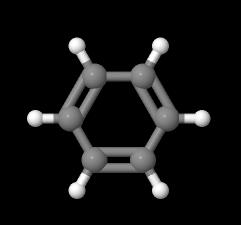March 24, 2021
Back in March, Adam Smith, a reporter for TheStreet wrote about a new company called Valisure, which tested various brands and batches of alcohol hand sanitizer, and found that a number of them were contaminated with benzene, a known carcinogen (and damn a scary one, in my opinion). Mr. Smith asked for my comments.
'“All organic chemists are leery of benzene (a known carcinogen), so much so that virtually all benzene in labs has been replaced by toluene, which is very similar in properties, but is not carcinogenic,” said Josh Bloom, director of chemical and pharmaceutical science at the American Council on Science and Health, an advocacy group sometimes described as a pro-industry (emphasis added)." (1)
"But Bloom said that minuscule amounts were of little concern to most people. Gasoline, he said, can contain far more benzene, and splashing a little on one’s hand at the gas station would expose a person to more than the sanitizers would."
'“I cannot tell you that there is no risk,” said Bloom in an email to TheStreet on Sunday. “Risk depends on the amount/time of exposure and the individual. In my opinion, the risk is low, probably very low, and I would not hesitate to use alcohol with very small amounts of benzene in it.”'
"He also noted that COVID is almost entirely spread by air, and so in general “it can reasonably be assumed that we are probably also overusing the alcohol sanitizers.”
June 3, 2021
Now, Valisure is at it again. The company has detected (once again) benzene, but this time in sunscreen. But, now, the situation is different. Would I be comfortable slathering benzene-contaminated sunscreen all over me? I had no problem with using the hand sanitizers, but what about this?
Absorption of chemicals through the skin
The absorption of chemicals through the skin and into the bloodstream is determined by a number of factors:
Source: CDC
The CDC table (above) explains why benzene sanitizer is not benzene sunscreen. Let's look at some of these parameters and why the two are fundamentally different.
#1 The chances of damaged skin are (obviously) higher when comparing hands to hands plus all sun-exposed areas of the body. Sunscreen > sanitizer
#2 Unknown. Let's call this one a wash.
#3 Benzene is readily absorbed through the skin. Again, a wash.
#4 Unknown, although benzene concentrations found in hand sanitizer and sunscreen were about the same - roughly 2 ppm.
#5 There may be a difference here, although it is difficult to compare rubbing your hands with alcohol and repeatedly applying sunscreen on a day at the beach or pool, perhaps all summer.
Here's the difference
#6 The difference in surface area of the hands and sunscreen areas is significant. All things being equal, if this difference is 10-20 fold, then the amount of benzene absorbed into the blood will be something like 10-20 times greater. This is not new science. Paracelsus, who was way before his time, figured it out in the 16th century:
"All things are poison, and nothing is without poison; the dosage alone makes it so a thing is not a poison."
How scary is this really?
This depends on what you consider scary. Is one tube of benzene-contaminated sunscreen going to give you leukemia years from now? Almost certainly not. But the risk is relative. There is no way to quantitate this conclusion, but while I am unconcerned about the use of benzene-contaminated hand sanitizer, I cannot say the same for sunscreen. The chronic use of benzene-contaminated sunscreen isn't terrifying, but it is a reasonable concern. There is no place for benzene in sunscreen. It performs no function and is simply the product of sloppy manufacturing. I'm hardly the one to hype chemical scares, but Valisure has a valid point here.
NOTES:
(1) I'm sometimes described as LeBron James. That doesn't make it accurate.




